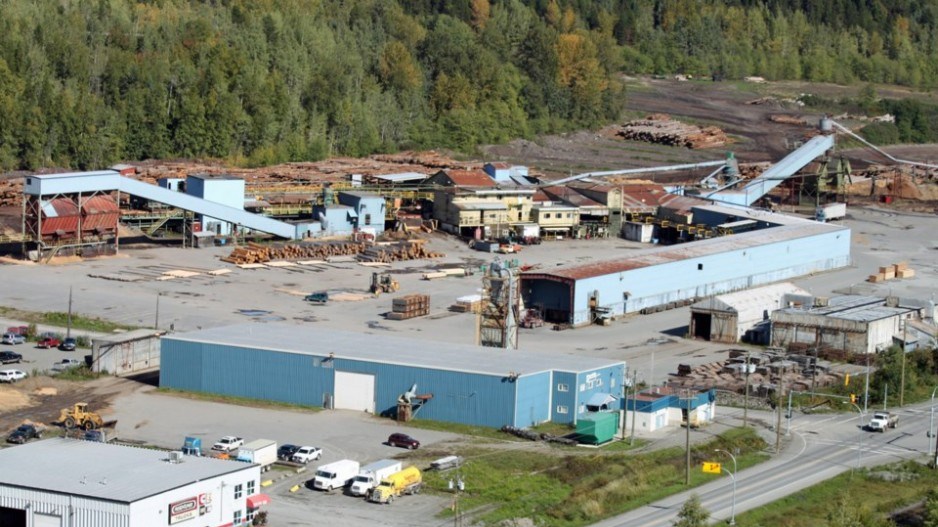Skeena Sawmills Ltd., a major employer in Terrace, has announced it is closing indefinitely as of Feb. 8, throwing more than 150 people out of work.
The closure includes both the mill and its pellet plant, Skeena Bioenergy, according to a story in the Terrace Standard, which noted that high operating costs, the lack of a secure fibre supply and weak markets have combined to make operating in the community uneconomical.
Skeena halted log deliveries to its Terrace operation in January for three weeks in order to reduce inventory prior to the closure announcement.
A statement from the company, not yet posted online, indicated that it hopes to reopen despite the challenges facing the province's forest sector.
“We are using this downtime to undergo a comprehensive evaluation of our economic fibre supply and develop innovative solutions to provide sustained success for our business and community,” said Sandra Wu, Skeena’s president and chief executive officer.
The move comes on the heels of Canfor’s announcement that it is permanently closing its sawmill and pellet plant in Chetwynd and mothballing its operations in Houston.
The closure follows recent provincial announcements of tens of millions of dollars to fund the retooling and renewal of mills across the province, and underscores the entrenched woes that have the sector stumped. This includes $90 million to retool paper mills for value-added production and $50 million to increase the use of low-value or residual fibre.
Speaking at the BC Truck Loggers Association Convention in Vancouver on January 18, several analysts noted that value-added manufacturing will be no more successful than sawmills if they can't secure a stable supply of logs.
While there is a growing market for engineered wood products like cross-laminated timber (CLT), companies won’t invest in new manufacturing facilities if there is a fundamental lack of fibre and if costs are too high, said Russ Taylor, president of Russ Taylor Global, a wood business and market consulting firm based in Vancouver.
However, several policies implemented since the BC NDP came to power in 2017 have limited access to logs, the most significant being a moratorium on logging in areas with old growth trees.
By some estimates, more than 30 per cent of Interior sawmills are closed or curtailed, a proportion that grows by the week.
Skeena's closure adds to that number, proving that it will take more than government funding to restore the sector to health.
Some mills and their suppliers will never recover.
Recently released insolvency data from the federal Office of the Superintendent of Bankruptcy indicates that six logging companies declared insolvency last year, up from two a year earlier.
According to the Canadian Federation of Independent Business, for every company that declares insolvency, another nine wind down and close quietly.



